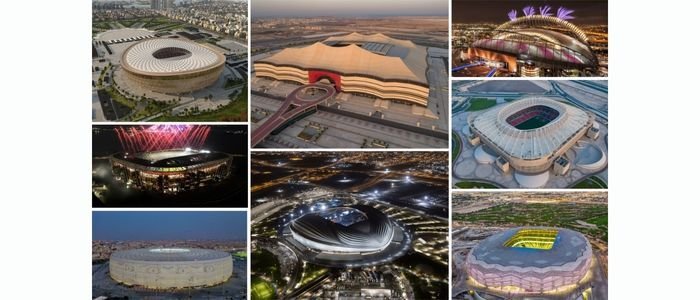Ripon Kumer Sarker –
Apart from the football matches, this year’s world cup will definitely snatch your eyes to the mesmerizing stadiums of Qatar. This rich country alone has spent far more billions of dollars than all the costs of the world cup in history combined. The cost is paid off if you stare at the lavish stadiums. All the stadiums have their own five-star hotel facility and you can watch a world cup match from your hotel balcony with a cup of tea in your hand. Qatar has built eight different stadiums targeting only the world cup. Here goes the story of each stadium
Lusail Stadium:
Messi’s Argentina and Neymar’s Brazil will play their first matches here. The World Cup Final match will be played here too along with 6 group stage matches, 1 round of sixteen, 1 quarter-final, and 1 semi-final match. It is the largest stadium in Qatar with a seating capacity of 80 thousand. Its design reflects the hand-crafted bowls found all across the Arab and Islamic world. The stadium is fully air-conditioned, powered by green solar energy across it, and can be set up to a temperature of 13-degree Celsius.
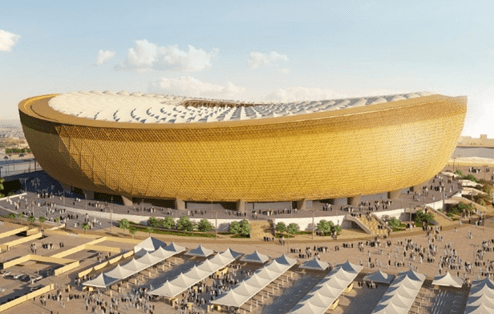

Photo 1: Lusail Stadium (Crafted Bowl Stadium): Who will lift the World Cup in this iconic Stadium?
Stadium 974:
Built with 974 pieces of shipping containers, it can be considered the world’s most astonishing stadium. The concept originated from Qatar’s dialing code “+974”. The stadium is fully portable and can be transferred anywhere in the world. It is the first-ever temporary venue in FIFA World Cup history with a seating capacity of 40 thousand. After the world cup, this stadium will be moved to Uruguay for the 2030 world cup. Many Bangladeshis worked in the development of this stadium. 6 group stage matches and 1 round of sixteen match will be played here.
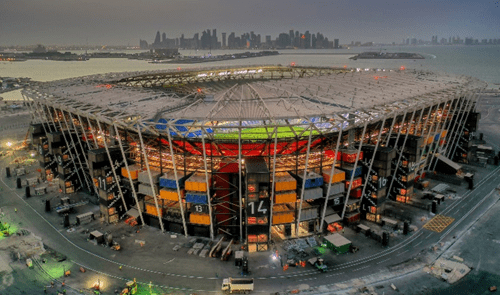
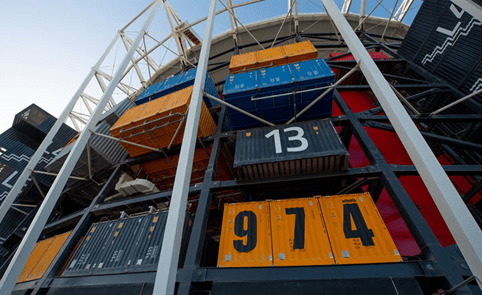
Photo 2: Stadium 974 (Shipping Container Stadium): World’s most unique portable Stadium
Al Bayt Stadium:
This stadium is like a big Bedouin tent, colored red, white, and black. With a seating capacity of 60 thousand, Al Bayt stadium has the unique feature of opening and closing the roof in just 20 minutes so there will be no worry about rain. The grand opening ceremony and the first match between Qatar and Ecuador will be kicked-off in this stadium. 6 group stage matches, 1 round of sixteen, 1 quarter-final, and 1 semi-final match will be played here too.
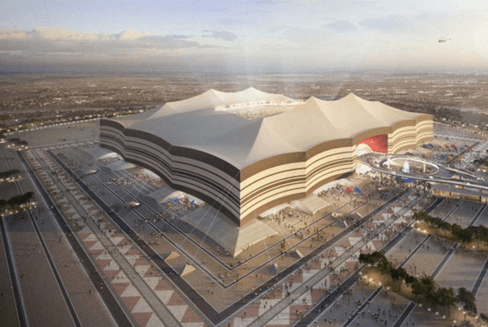
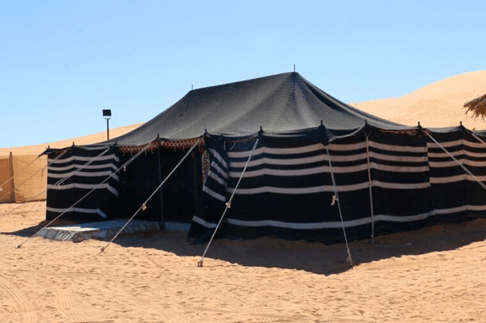
Photo 3: Al Bayt Stadium (Bedouin Tent Stadium): Qatar’s traditional legacy
Al Janoub Stadium:
This stadium design is inspired by the traditional “Dhow Boats” of Qatar. The retractable roof is designed as the sails of their traditional sailing boats, used by pearl divers from the region, weaving through currents of the Persian Gulf. The venue location Al Wakrah’s history of seafaring is reflected through the curvilinear roof and the exterior reference, giving spectators the feeling of being on a ship. With a seating capacity of 40 thousand, this stadium has a Central AC system, capable of cooling down the temperature up to 18-degree Celsius for visitors and 20-degree Celsius for players. 6 group stage matches and 1 round of sixteen match will be played here.
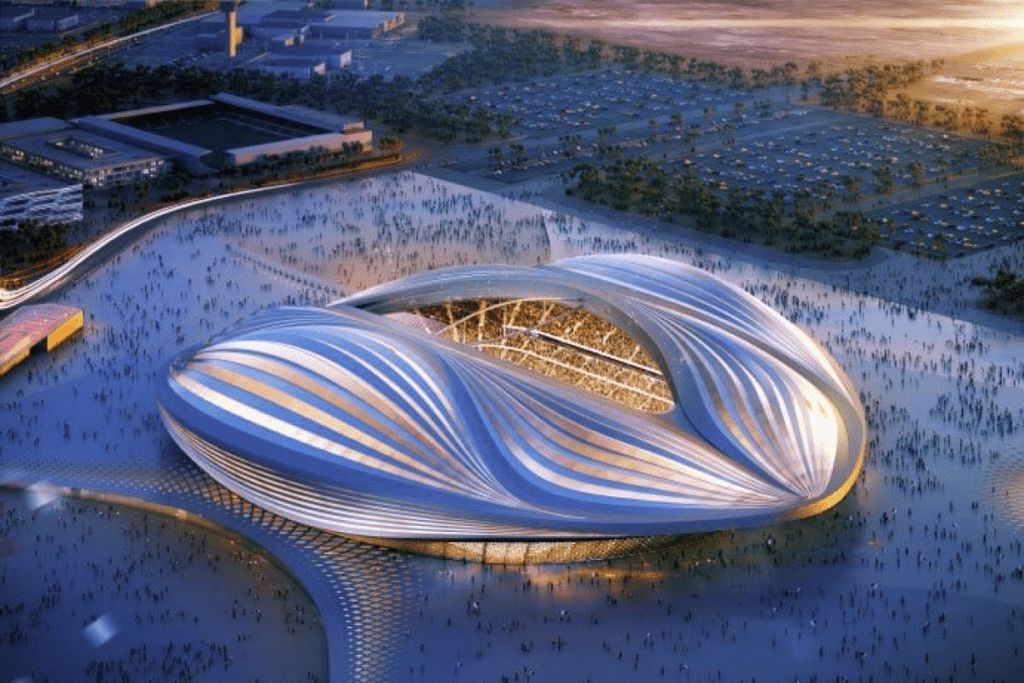
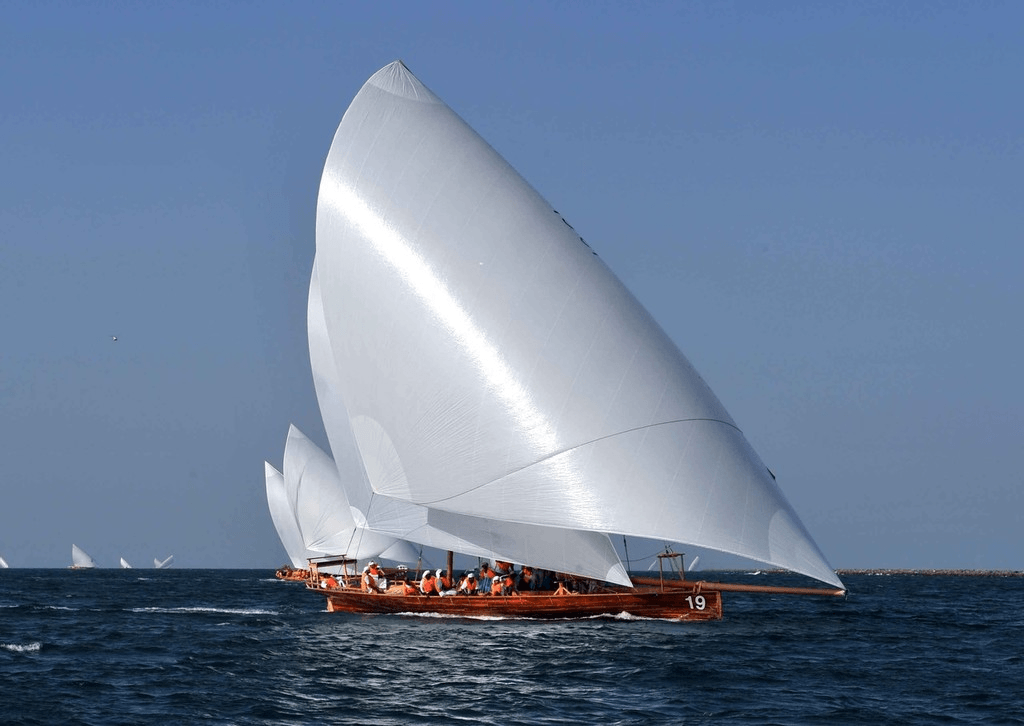
Photo 4: Al Janoub Stadium (Sailing Stadium): You will be on a boat after entering the stadium
Al-Thumama Stadium:
You must have seen the “Gahfiya” or “Taqiyah Hat”, a traditional woven cap adorned by men and boys all across the Arab World. This stadium is the largest resemblance of that Taqiyah Hat with a seating capacity of 40 thousand and a big public park surrounding the stadium. 6 group stage matches, 1 round of sixteen, and 1 quarter-final match will be played here.
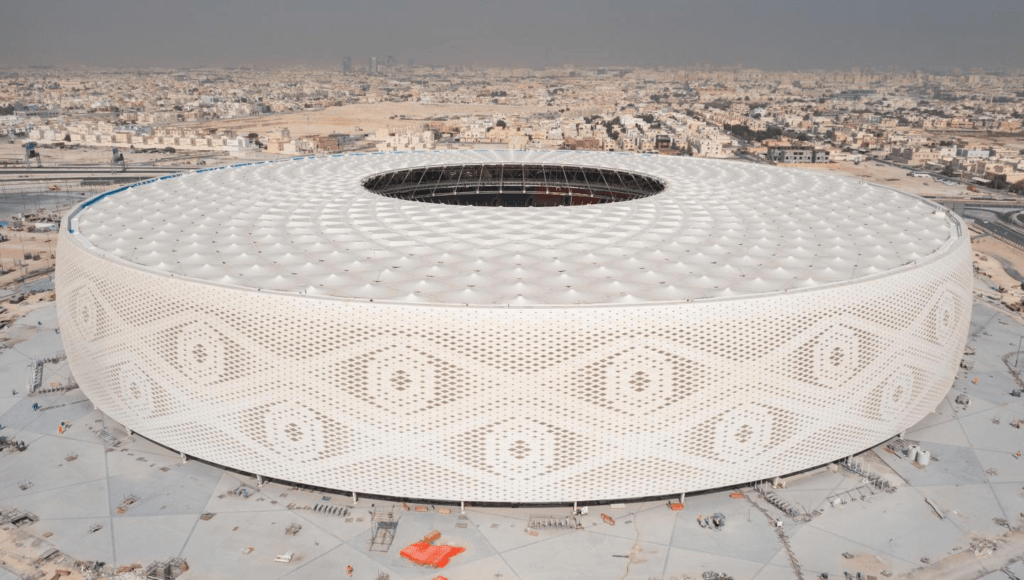

Photo 5: Al-Thumama Stadium (Taqiyah Hat Stadium): Resembles the traditional hat of the Middle East
Education City Stadium:
Surrounded by several universities at the Qatar Foundation’s Education City, this world’s most sustainable 40-thousand-seating capacity stadium is named as such. However, it is popularly known as “The Diamond in the Desert” since the stadium glazes at night with its dancing colors to represent a fiery diamond. 6 group stage matches, 1 round of sixteen, and 1 quarter-final match will be played here.
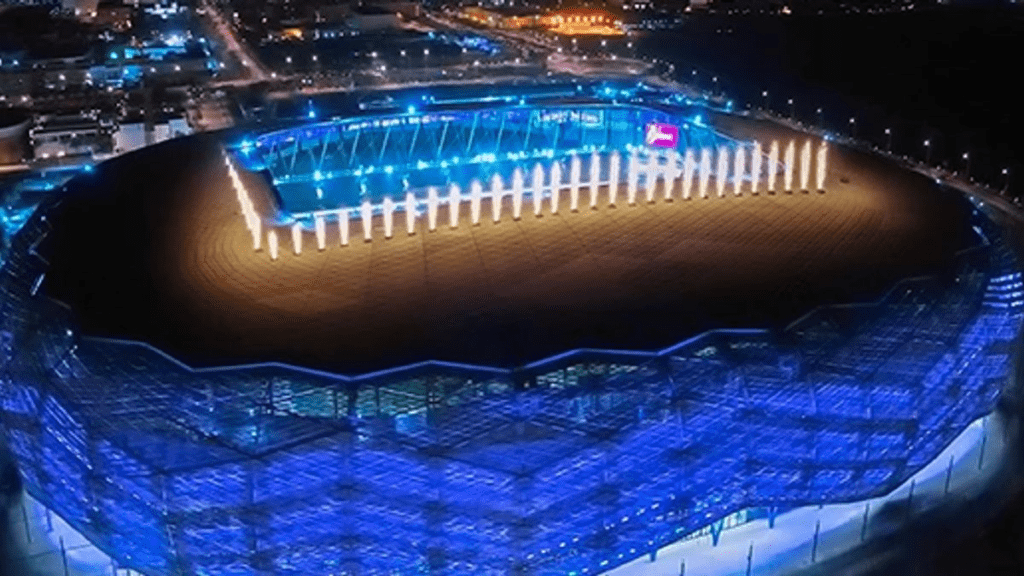

Photo 6: Education City Stadium (Diamond Stadium): The design is inspired by a diamond
Khalifa International Stadium:
The stadium is named after the former Emir of Qatar Khalifa bin Hamad Al Thani and is the oldest and the national football stadium in the country with a seating capacity of 40 thousand. A roof covers the western side of the stadium, and the eastern side has a large arch that can be used as a platform to launch fireworks for any occasion. The magnificent dual arches are its most recognizable features. It enables the stadium’s cooling system to maintain a comfortable temperature for the players and fans. 6 group stage matches, 1 round of sixteen, and the third-place play-off matches will be played here.
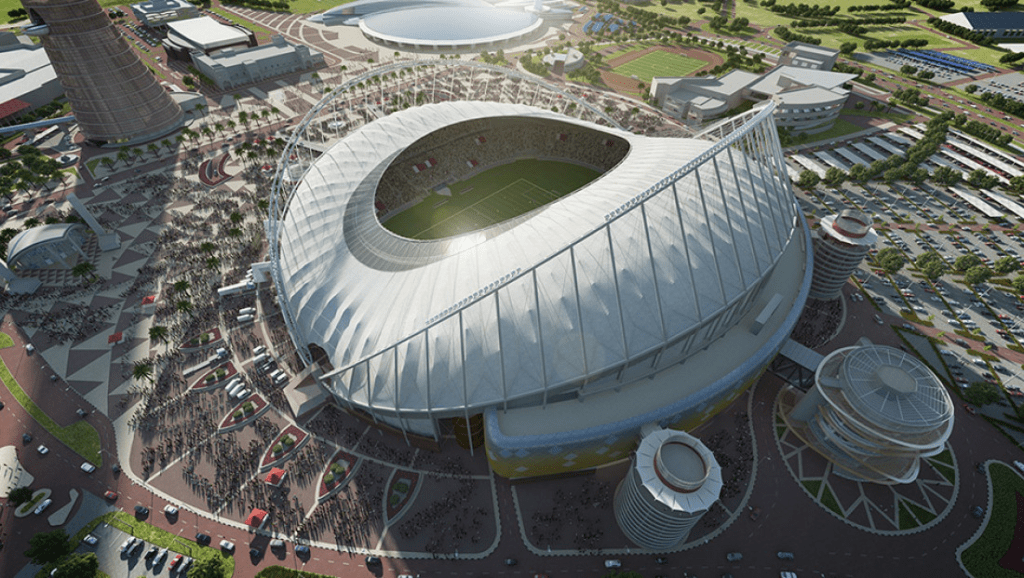
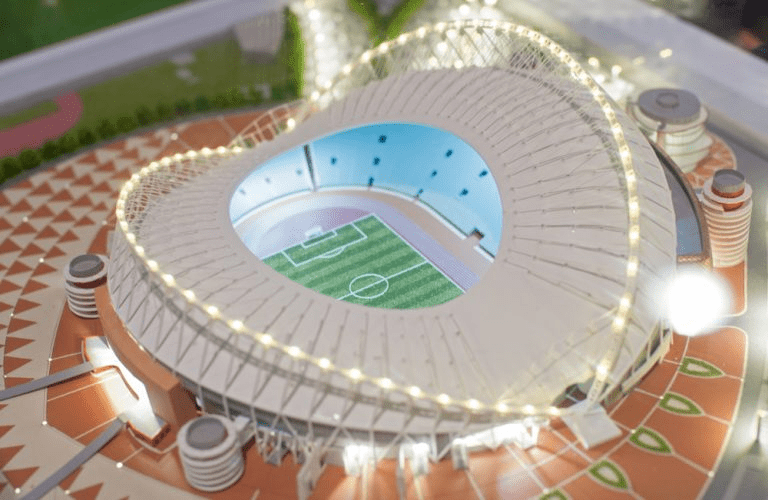
Photo 7: Khalifa International Stadium (Dual Arches Stadium): Resembles the traditional hat of the Middle East
Ahmed Bin Ali Stadium:
Named after former Emir of Qatar Ahmed bin Ali Al Thani, the stadium is popularly known as “Al Rayyan Stadium”. With a seating capacity of 40 thousand, this stadium reflects Qatari culture. Its glowing facade and geometric shapes tell the story of Qatar and highlight different aspects of Qatar. 6 group stage matches and 1 round of sixteen match will be played here.
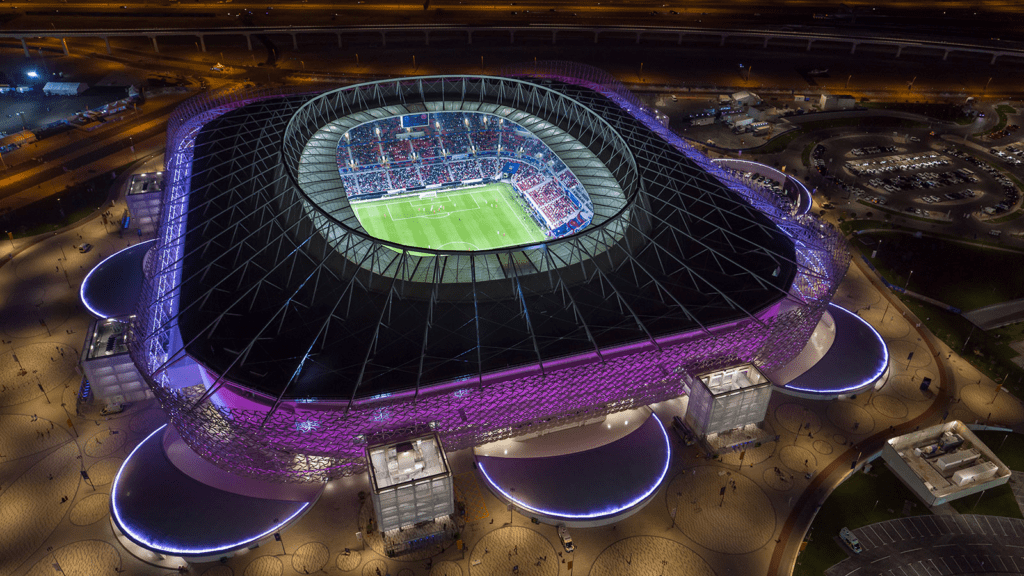
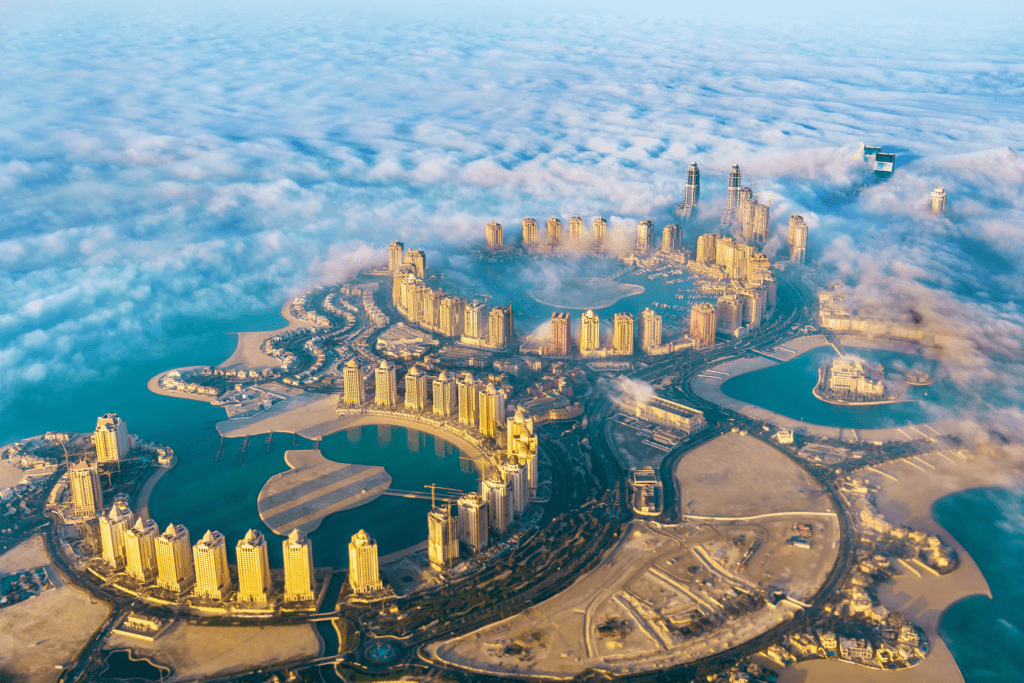
Photo 8: Ahmed Bin Ali Stadium (Qatari Culture Stadium): Represents the culture of Qatar



